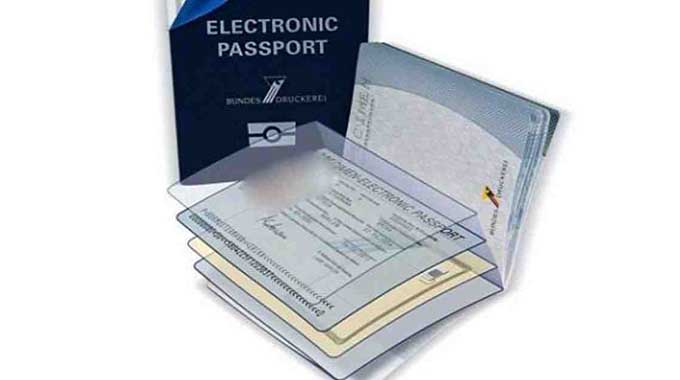E-passport now in use

Daniel Nemukuyu Investigations Editor
The new electronic passport (e-passport) is now acceptable as an official document at all ports of entry and travellers can safely use it for their foreign trips, the Immigration Department has said.
Zimbabwe recently launched an e-passport with enhanced security features to replace the old one.
After the launch, travellers were advised to wait until February 7 to allow for the completion of processes leading to the acceptability of the document.
The Immigration Department’s spokesperson, Ms Memory Mugwagwa, said the specimen of the new document had since been sent to all borders and immigration officers were now familiar with its features.
“Yes, the passport is acceptable. We have since sent the specimen to all borders and the officers are now conversant with the new security features.
“It has enhanced security features, which are not prone to fraudulent activities,” said Ms Mugwagwa.
This comes at a time when the Government relaxed Covid-19 restrictions and opened all ports of entry to fully vaccinated travellers with valid Covid-19 PCR test certificates.
Cabinet agreed to the reopening of land ports after a prolonged closure brought about by the need to control the spread of the virus.
Prior to the recent decision, borders were open for commercial activity, with airports catering for non-commercial activities including returning residents.
The new e-passport was launched by President Mnangagwa in December last year.
Issuance of e-passports began on January 18 as the Central Registry Department heeded Government’s directive to smoothen the process of acquiring travel documents which hitherto was mired in corrupt tendencies and bureaucracy.
The launch of the e-passport and the state-of-the-art passport enrolment centre, is in line with the Government’s vision for a modern and digitalised economy.
Strategic investment in key areas of the digital economy is seen as a critical way of Zimbabwe keeping pace with the dynamic and technological environment.
When he launched the e-passport, the President said the rolling out of the travel document dovetailed with the National Development Strategy 1 (NDS1) objective of modernising the economy through the use of ICTs and digital technology.
The production of the e-passport ushered the country’s entry into the era of smart technology in travel and identification documents and conforms with the dictates of regional and international conventions, protocols and treaties that Zimbabwe is party to, particularly those relating to civil and travel documents.
The International Civil Aviation Organisation Convention requires that member states take measures to ensure the integrity, authenticity and security of travel and identity documents.
The e-passport will be machine readable to eradicate counterfeits.
The enhanced security features are expected to boost authorities’ quest in fighting cross-border organised crimes and illegal migration and maintain the integrity of the country’s immigration system.
President Mnangagwa is on record saying the Government was committed to ensuring that every citizen has easy access to vital civil registration and travel documents.
He said he was alive to the challenges people had been experiencing in acquiring travel and other official documents, resulting in the accumulation of a huge backlog.
The implementation of the biometric system is now at full throttle and is expected to culminate in increased production of not just e-passports, but also national identity cards, birth certificates, entry visas as well as residence permits.
The era of long queues and corrupt tendencies in the issuance of vital civil registration documents is set to be eradicated by this system.









Comments